Description
FAQ about Rainforest Plants of Australia KEY:
- What is the Rainforest Plants of Australia Key & Information System?
- Who is this Key & Information System for?
- Which rainforest species are included?
- Which area is covered?
- What species information does it include?
- Why is it easy to use?
- Why is it called an Information System?
- What is the benefit of the 12,000 photos?
What is the RAINFOREST PLANTS of AUSTRALIA Interactive Identification Key & Information System?
This interactive key enables rapid identification of rainforest plants of Australia(Rockhampton to Victoria), covering 1140 species and including extensive information about eastern Australian rainforests. It is a user-friendly digital system, using Lucid 3.5 technology, provided on a key-shaped USB in a DVD-sized package. Over 12,000 photographs are included.
This key has been 13 years in preparation by botanists Gwen Harden, Bill McDonald, Nan Nicholson and photographer Hugh Nicholson. Terry Tame and John Williams also contributed.
The key is based on updated and expanded information from the “Red Book” Rainforest Trees & Shrubs, and the “Green Book” Rainforest Climbing Plants, both by Gwen Harden, Bill McDonald and John Williams. Nan and Hugh Nicholson are author and photographer of Australian Rainforest Plants I-VI.
It is the combination of expertise and enthusiasm for rainforests that makes this key not only exceptionally thorough and accurate but a thing of beauty and a joy to use.
Home page of Key
Who is this Interactive Identification Key and Information System for?
This key is for everyone interested in rainforest, whether they are professional botanists or ecologists, or plant lovers with little or no knowledge of botanical terms.
Those who would find this resource useful:
- landowners
- government agencies
- environmental consultants
- landcare workers
- bushwalkers
- environmentalists
- researchers
- professional botanists
- taxonomists
- gardeners
- and all those interested in Australian rainforests
Which rainforest species are included?
All 1140 species of rainforest trees, shrubs, climbers and mistletoes within the distribution area. This includes 104 species of weeds naturalised in rainforest, and 201 rare & threatened species.
What area is covered?
Eastern and southern mainland Australia, from Rockhampton in Queensland to southern Victoria.
Distribution covered by the Key
What species information does it include?
Each of the 1140 species has a detailed botanical description, a detailed line drawing and up to 15 photographs showing habit, leaf, flower, fruit, bark and other distinguishing features.
Example of species Fact Sheet
Example of line drawing
Why is it easy to use?
The key can be searched using 160 different features. These include botanical features such as habit, leaves, stems, bark, flowers, fruits and many other characteristics, eg. spines, climbing mechanisms or type of sap. It can even be searched on new leaf colour or old leaf colour or leaf scent.
It can also be searched on geographical area, rainforest type, rare or threatened status, weed status or family.
Why is it called an Information System?
This key includes additional comprehensive information with many illustrations and photographs covering:
- Rainforest ecology
- Rainforest types from wet subtropical and cool-temperate to dry inland vine scrubs.
- Rainforest distribution and where to find the best examples
- Detailed illustrated glossary
- Huge list of references and useful websites
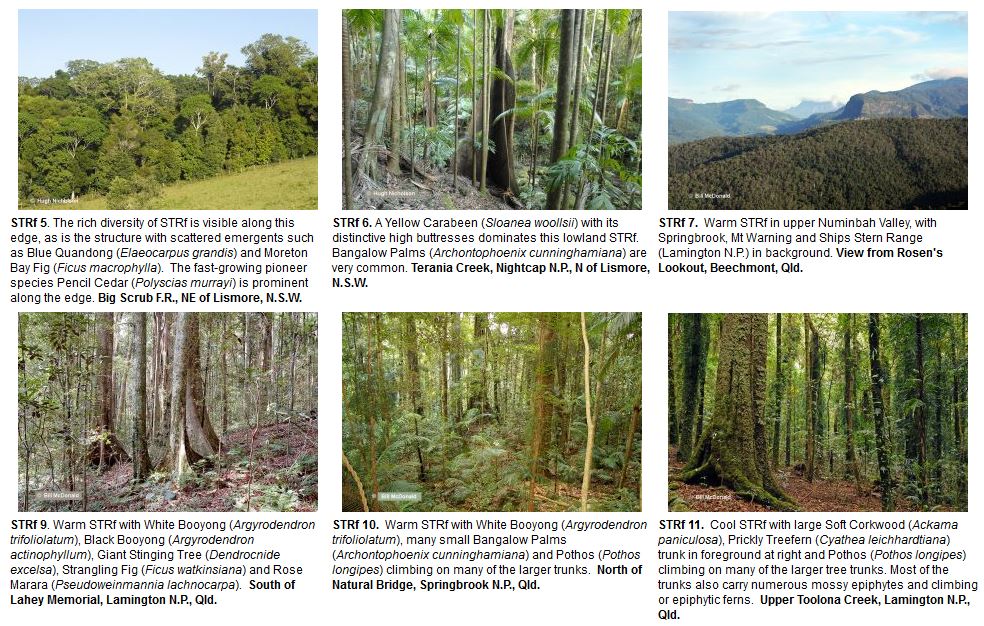 Examples of subtropical rainforest
Examples of subtropical rainforest
What is the benefit of the 12,000 photos?
The photographs alone make this an exceptional resource. Hugh Nicholson’s rainforest photography is renowned and many other photographers have also contributed images.
The photographs represent a comprehensive and beautiful collection of images of the rainforest plants in the study area.
They enable visual confirmation of species identification, and for inexperienced users, they can be used to find the right species once the key has narrowed possibilities down to about 10 or so species.
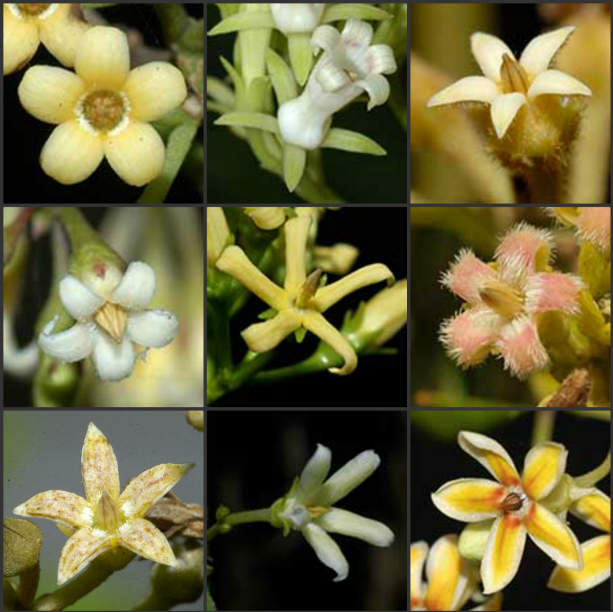 A selection of Silkpod flowers
A selection of Silkpod flowers
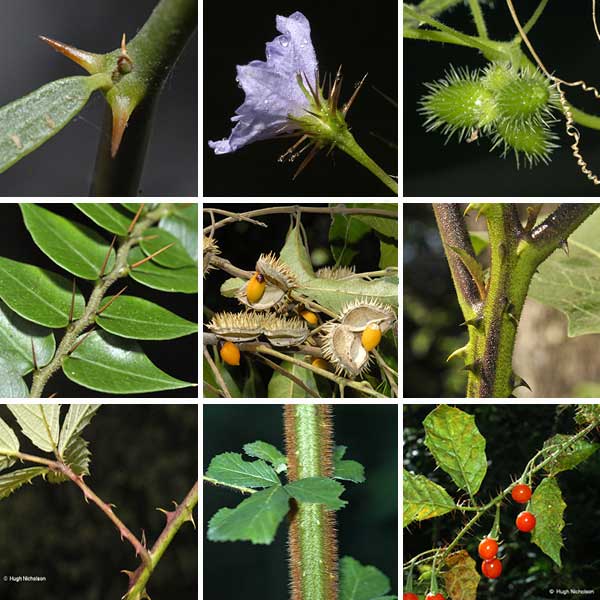 Different spines on a range of species
Different spines on a range of species

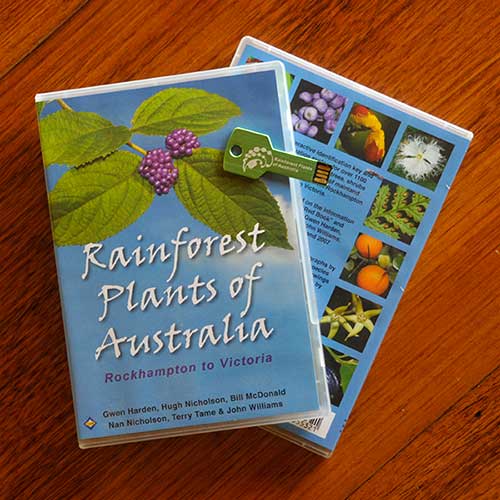
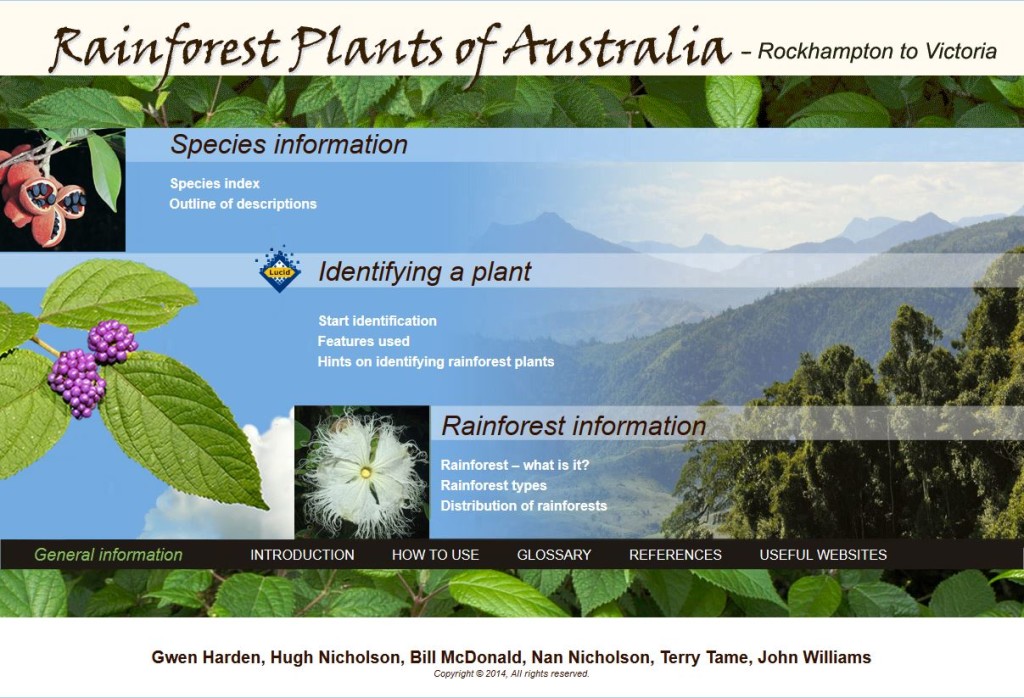

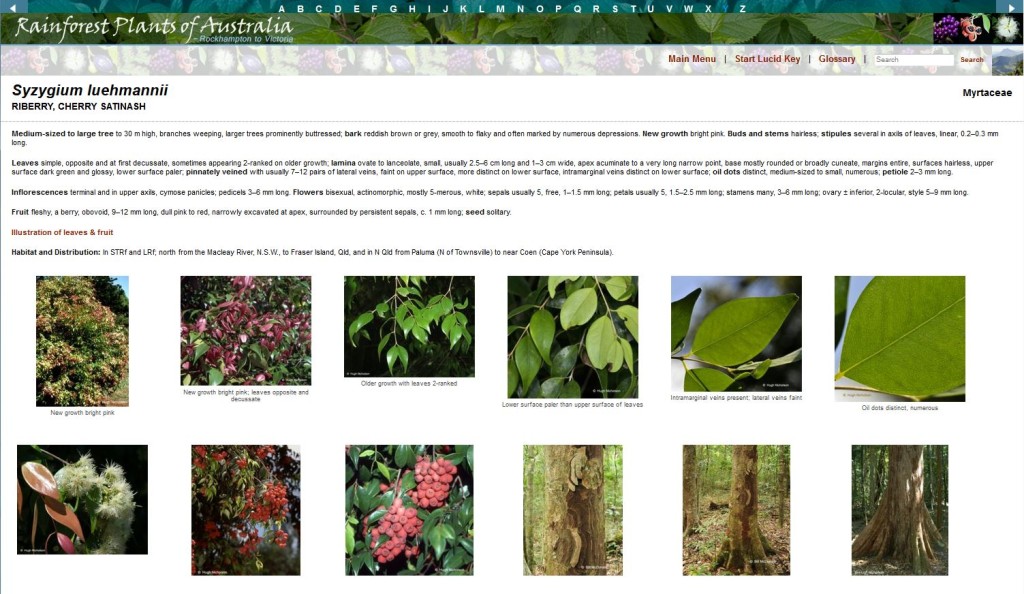
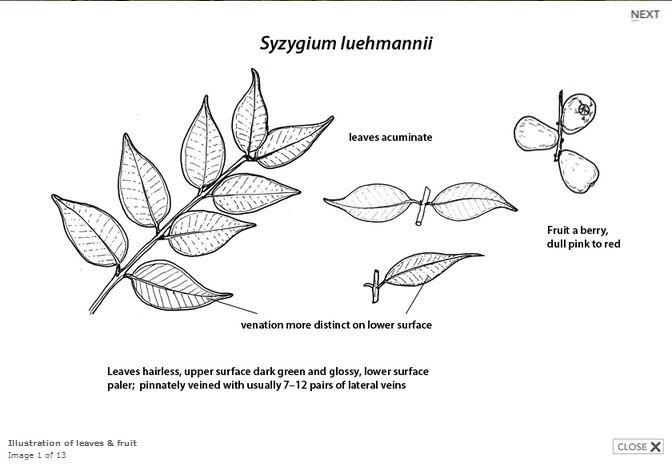
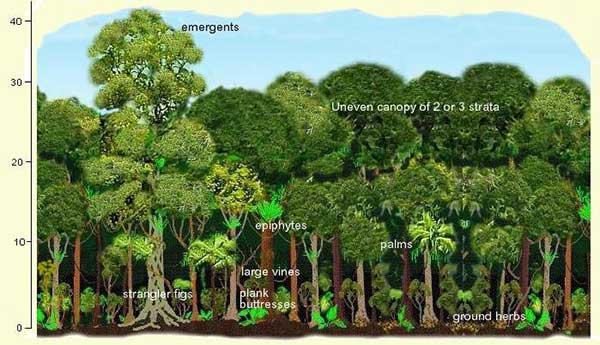
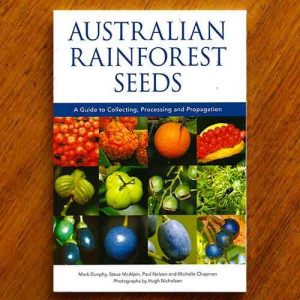
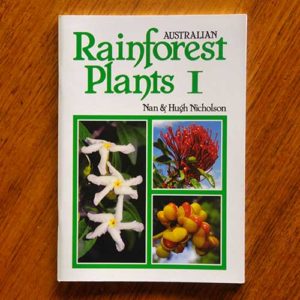
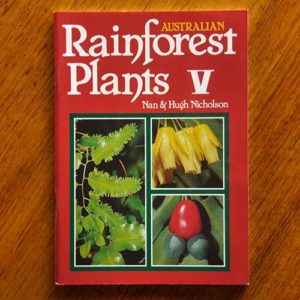

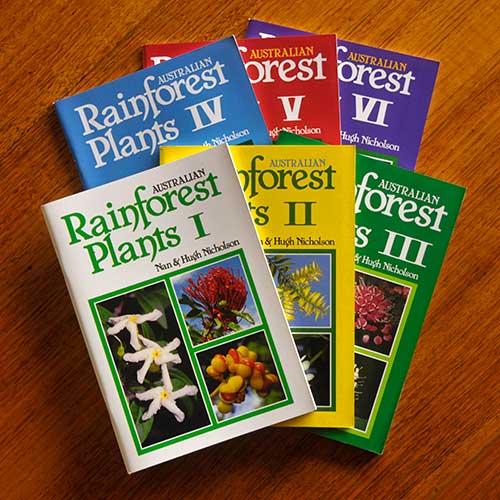

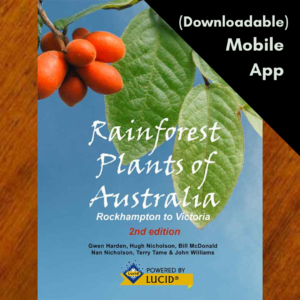
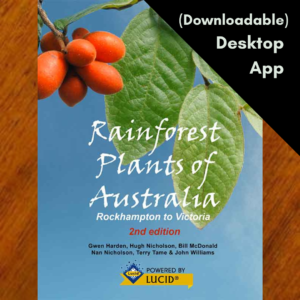
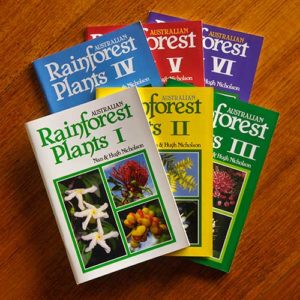
Terri Nicholson –
Well, I know I am biased because Nan & Hugh are my folks, but I must say I’m pretty darn impressed with this incredible resource they have co-created with their botanist colleagues over 13 years. It is beautifully easy to use, and simply stunning with all the photos. I’d say a must-have for professionals and rainforest enthusiasts alike. Warmly, Terri Nicholson